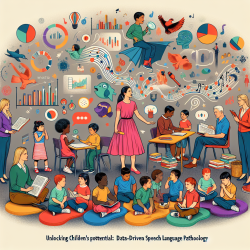Introduction
The COVID-19 pandemic has unveiled various systemic issues across the globe, particularly in healthcare systems. The research article "When the Masks Come Off in Canada and Guatemala: Will the Realities of Racism and Marginalization of Midwives Finally Be Addressed?" by Daviss et al. (2021) provides a comparative analysis of the midwifery practices in Canada and Guatemala, highlighting the challenges faced by marginalized communities and the role of midwives during the pandemic. This blog post aims to help practitioners improve their skills by implementing the outcomes of this research and encouraging further exploration of these critical issues.
Understanding the Research
The research highlights the disparities faced by Indigenous, Black, and People of Color (IBPOC) in Canada and Guatemala, exacerbated by the COVID-19 pandemic. In both regions, midwives play a crucial role in providing care to marginalized communities, yet they face systemic challenges, including racism and lack of governmental support.
In Canada, despite having a well-integrated midwifery system, Indigenous and racialized communities experience significant health disparities. The pandemic has further exposed these inequities, with IBPOC communities suffering from secondary consequences of COVID-19, such as economic instability and limited access to healthcare.
In Guatemala, traditional midwives, known as comadronas, serve as primary healthcare providers in rural areas. However, they lack formal recognition and support from the government, making their work challenging, especially during the pandemic.
Key Findings and Implications
- Racism and Marginalization: Both Canada and Guatemala exhibit systemic racism and marginalization of midwives, which affects the quality of care provided to marginalized communities. Practitioners should be aware of these issues and advocate for systemic changes to address them.
- Role of Midwives: Midwives are essential in providing culturally appropriate care to marginalized communities. Supporting midwives through formal recognition and governmental support can improve healthcare outcomes.
- Impact of COVID-19: The pandemic has highlighted the vulnerabilities of marginalized communities. Practitioners should consider the social determinants of health when providing care and advocate for policies that address these disparities.
Encouraging Further Research
Practitioners are encouraged to delve deeper into the issues of racism and marginalization in midwifery. Further research can help identify effective strategies to support midwives and improve healthcare outcomes for marginalized communities. Collaboration with community organizations and advocacy for policy changes are crucial steps in addressing these systemic issues.
Conclusion
The research by Daviss et al. (2021) sheds light on the critical issues of racism and marginalization in midwifery in Canada and Guatemala. By understanding these challenges and advocating for systemic changes, practitioners can play a pivotal role in improving healthcare outcomes for marginalized communities. To read the original research paper, please follow this link: When the Masks Come Off in Canada and Guatemala: Will the Realities of Racism and Marginalization of Midwives Finally Be Addressed?










